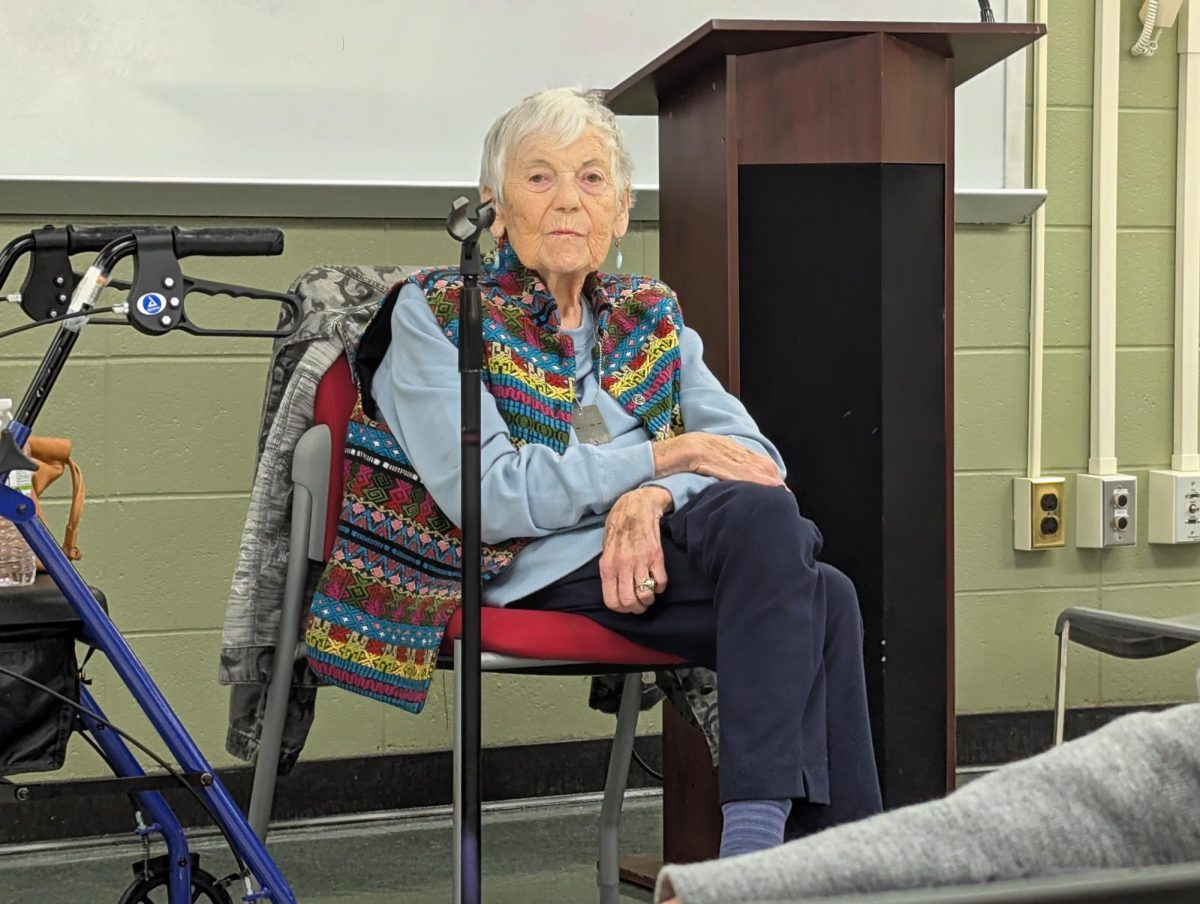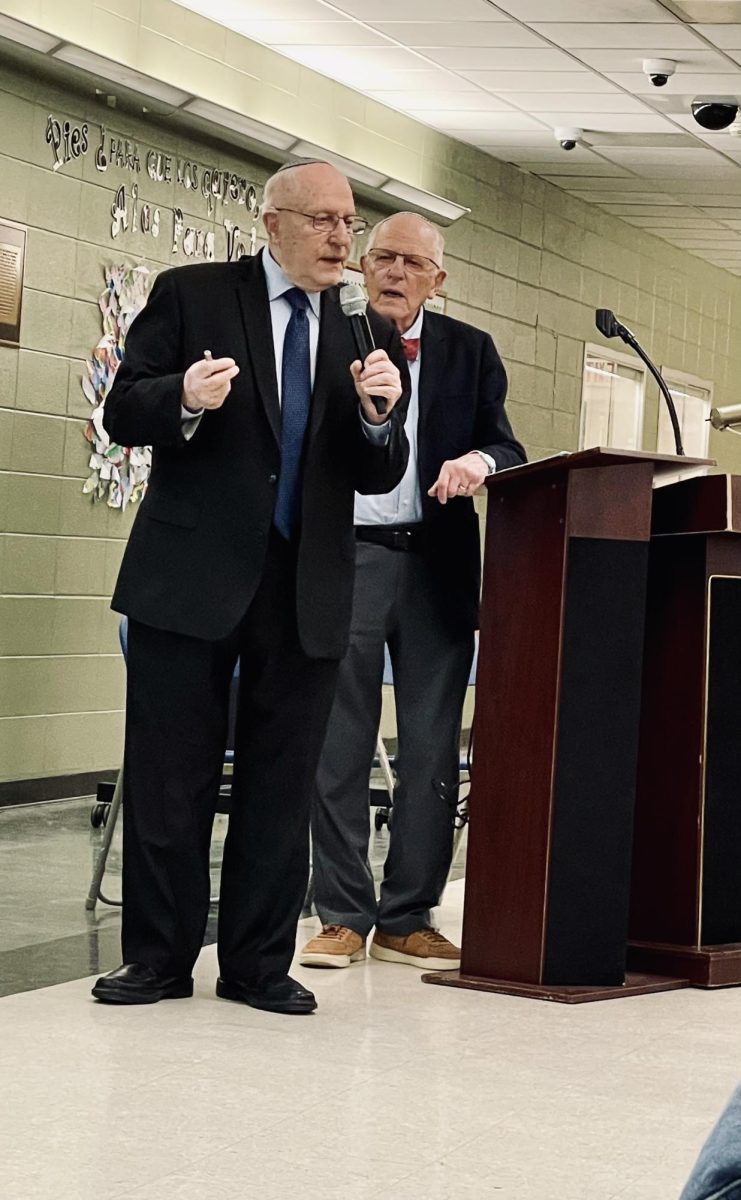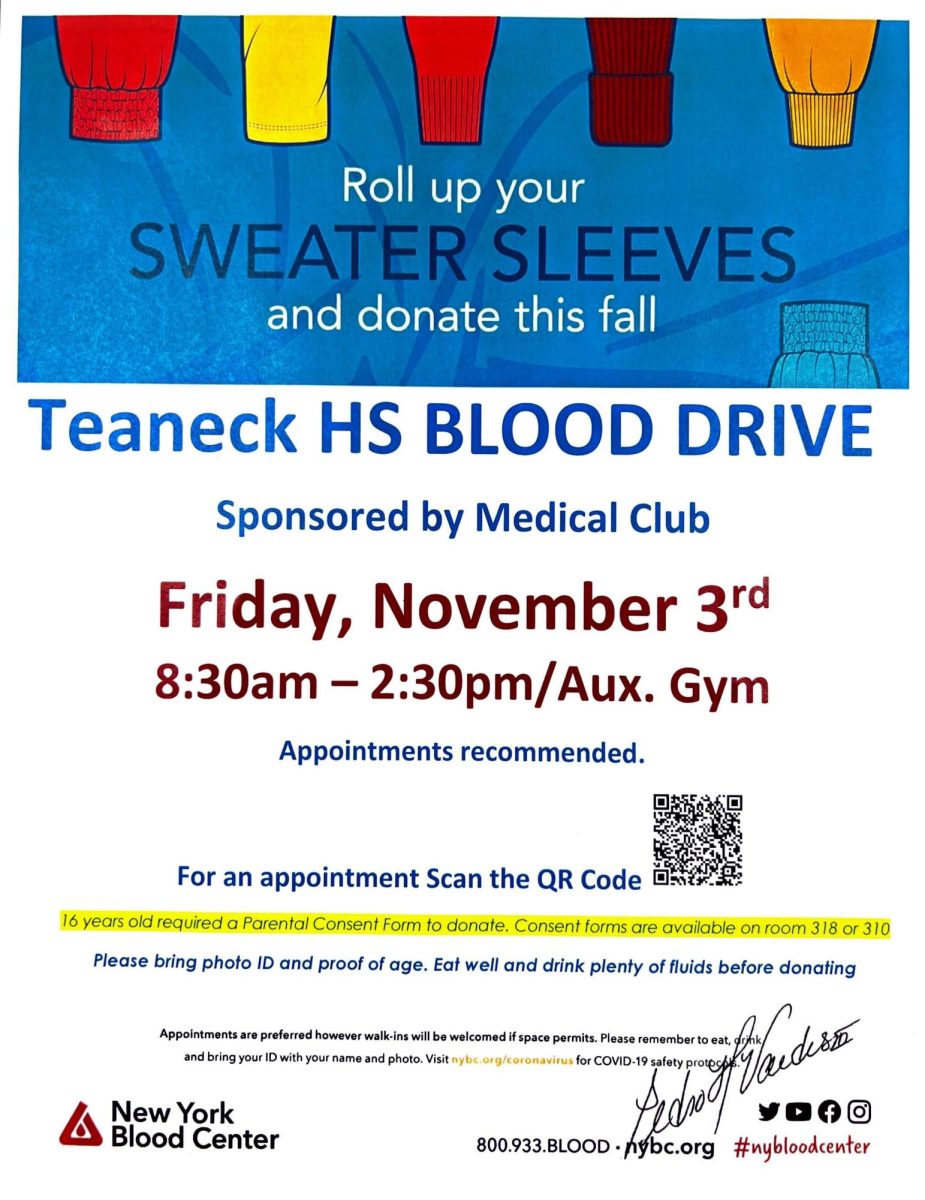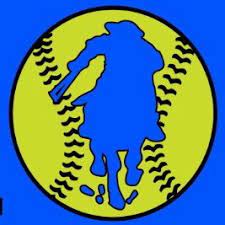We Laugh, We Hurt, We Cry- Remembering Kristallnacht
August 11, 2023
Kristallnacht, roughly meaning “Night of Broken Glass” refers to a wave of anti-Jewish persecution and attacks that took place on November 9th and 10th of 1938. The term came from the shards of shattered glass that lined German streets from windows of synagogues, homes, and Jewish owned businesses that were destroyed during the wave of violence. This would mark the beginning of a dark time for many people during World War II.
Around November 9th of this year, myself and many others had the pleasure of meeting Mrs. Edelstein. She is a very bright, jovial, and humorous person. She was able to tell her story of growing up around the time of World War II as a Jewish person and the many adversities she overcame.
Her story had started off with her describing to us how her father had heard the radio broadcast, World War II had started and the Nazis were making a move toward other nations. Her and her family were in Poland at the time, and they realized they couldn’t stay. Mrs. Edelstein recounted that her mother was physically kissing the house goodbye.
Mrs. Edelstein and her family had to make the trip by wagon. Unfortunately, bombs began to fall, killing and injuring many. At one point, she had fallen asleep and woken up with a wagon on top of her. As she was five, she was terrified. She recounted that it felt like an eternity until some men nearby were able to help free her and reunite her with her family. She would continue eastward into Poland, far enough into what is now modern-day Ukraine.
This memory would later come up when she went to a museum about the Holocaust. There were displays that had wagons in them and she bursted into tears. At first she had no idea why, but she explained that she had been feeling fine before that. She would soon realize that she had a flashback to this memory after all those years.
She and her family would have to go into hiding for three days in a basement, where they could only eat pickles. She remembered that when her baby sister would cry, they would put pickles in her mouth to keep her quiet so that they wouldn’t be discovered.
She described at one point that the reason she believes she survived was because she was considered an enemy of the state and was exiled to Siberia.
The train ride to Siberia was long and harsh. She recounted the below freezing temperatures and bland food that was given to the people in the train in small quantities.
When they arrived in Siberia, they stayed in log cabins, which her father and her father’s friends built. Her father was called a hero, so they got extra rations of bread. The bread has sawdust added to them to make them more substantial. Throughout her life in Siberia, she dealt with hunger and the unknown. Hunger was so prevalent, that a beggar would have to resort to eating his own lice.
At some point, Mrs. Edelstein and her family were no longer considered enemies of the state, so they gained a small privilege of limited travel. In this time, they traveled to Uzbekistan and they would remain there until the war ended. In this time, her father made shoes and her mother would sell them on the black market in order to make a little extra profit for food. This was a crime there, so they needed to be very careful. Hunger was still prevalent.
After the war had ended, pictures had to be taken of the gruesome aftermath of the Holocaust, because there could be a time where no one believed it happened.
Mrs. Edelstein had shared very important lessons to all of us, deep down, we are all the same. We laugh, we hurt, we cry. And although there are so many injustices occurring, it’s very important to stand up for it, as this quote pertains, “If you don’t do anything, nothing happens, if nothing happens, you’re a collaborator.”
I give my special thanks to Mrs. Edelstein, Mrs. Minkowitz, and the staff that made this assembly able to happen.




